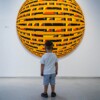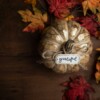Editor’s Note: In this column and the two following I’m going to discuss how Christian scholar’s should have a different view of time and decision-making regarding current events. Unfortunately, scholars often confuse what events need an immediate decision or pronouncement and what needs patience and additional knowledge gathering before a decision.
As a Christian higher education scholar, one of the things you will always see are arguments praising the merits of liberal arts education. Hardly any respectable scholar will ever say anything negative about liberal arts education. Granted, liberal arts education does have a 1700-year history that we should not dismiss lightly. Just recently, one study found, “Compared with the US, [STEM] students in China, India and Russia do not gain critical thinking skills over four years.” The authors attribute this result to the fact that “STEM undergraduates in these countries are required to take fewer courses in the humanities and social sciences.”
Yet, I think one of the virtues of a Christian approach to education is that we can be honest about both the strengths and weaknesses of a liberal arts education (and avoid false marketing). In this blog, I want to discuss one rarely mentioned weakness: I call it liberal arts hesitation. Part of my desire for honesty about this weakness is that I experienced it myself, see it in friends, and see it in my students now.
As William Perry noted long ago, and any parent of teenagers knows, first year students come into college quite opinionated, because they see things in black and white categories, or what Perry calls dualism.1 They’re also ready to argue why their own opinions are right. In Perry’s view, and in the view of many liberal arts educators, the purpose of higher education is to expose students to the multiplicity of views. They want to complicate knowledge for students.
Of course, as a professor, I certainly agree with this objective and see it as important part of the learning process. Students need to understand the plurality of approaches to a particular subject. It is at this point; however, that ideology and/or the lack of virtue often corrupts the process in three ways.
First, one of the most common ways for that corruption to occur is to stop the process here. Either due to their own relativistic worldview or due to simple lack of courage, professors do not ask students to move toward making a decision with partial knowledge. Indeed, this vice is characteristic of professors who always think they need more knowledge to make a decision. The educational philosopher George Counts summarized the problem with this approach beautifully:
There is the fallacy that the great object of education is to produce the college professor, that is, the individual who adopts an agnostic attitude towards every important social issue, who can balance the pros against the cons with the skill of a juggler, who sees all sides of every question and never commits himself to any, who delays action until all the facts are in, who knows that all the facts will never come in, who consequently holds his judgment in a state of indefinite suspension, and who before the approach of middle age sees his powers of action atrophy and his social sympathies decay.2
Taking students to this point develops what I call liberal arts hesitation. The reason why I use this term is that they often develop difficulty speaking boldly. I myself developed a hesitant way of speaking after my undergraduate education, and I had another friend do the same after their liberal arts education. Usually, I see students speak in partial sentences and with hesitation.
Part of this problem comes from a second major weakness. This intellectual process becomes corrupted by ideology. Perry demonstrated this corruption. He argued we should not leave students simply drowning in the morass of multiplicity, but we should move them toward, in his words, “commitment in relativism.” Right away, we should see the problem with this approach. He does not advocate trying to move students toward truth, goodness or beauty even when “we see through a glass, darkly” (I Cor. 13:12bKJV). Instead, Perry settles for saying you just have to commit to something. At the same time that Perry’s theory emerged in the 60s, Michael Novak critiqued the university for the result that applying the end of Perry’s theory produced:
It may be that the American consensus has forced a “commitment to nothing” upon our universities; we are a pluralist people, and it seems very difficult to discover a way to teach about those differences on ultimate questions that muse us so. The colleges make a “commitment to noncommitment,” have a “faith in non-faith.” They demand perpetual re-examination and have nowhere to rest.3
In other words, the core weakness is that professors do not teach students how to make commitments with partial knowledge, especially when lives depend on it or occasion demands it.
The reality is that it would be better if professors encouraged students to develop the virtue of courage that requires commitment in pluralism based upon partial knowledge or the available evidence. Yes, there are a plurality of worldview and positions on most every contentious issue, but one skill you must learn is to make decisions and commitments based on partial knowledge about what is true, good or beautiful (although the next two days I will talk about when we should take our time). As George Counts notes, “although college professors, if not too numerous, perform a valuable social function, society requires great numbers of persons who…are at the same time able to think in terms of life, make decisions and act. From such persons will come our real social leaders.”4
We can see this problem in our most recent crisis with COVID. We have produced a group of college professors instead of social leaders who can make courageous decisions based on partial knowledge and the evidence available. Recently, an article in the Intelligencer entitled, “How the West Lost COVID,” asked “How did so many rich countries get it so wrong? How did others get it so right?” Here is the answer in short offered by Michael Mina, a Harvard epidemiologist,
“We have physicians running the show — that’s a consistent thing, medical doctors across the western European countries, driving the decision-making.” The result, he says, has been short-sighted calculations that prioritize absolute knowledge about everything before advising or designing policy about anything.…in East Asia, countries didn’t wait for the WHO’s guidance to change on aerosols or asymptomatic transmission before masking up, social-distancing, and quarantining. “They acted fast. They acted decisively,” says Mina. “They made early moves. They didn’t sit and ponder: ‘What should we do? Do we have all of the data before we make a single decision?’ And I think that is a common theme that we’ve seen across all the Western countries—a reluctance to even admit that it was a big problem and then to really act without all of the information available. To this day, people are still not acting.” Instead, he says, “decision-makers have been paralyzed. They would rather just not act and let the pandemic move forward than act aggressively, but potentially be wrong.”
That my readers is the cost of liberal arts hesitation. When you combine academic pride, a lack of courage, and an inability to make decisions based on partial knowledge, people die. Christians should know that when lives are at stake, we must sometimes make immediate and important commitments—even in the midst of seeing through a glass darkly.
Footnotes
- William G. Perry, Forms of Intellectual and Ethical Development in the College Years: A Scheme (San Francisco: Jossey-Bass, 1968/1999).
- George Counts, “Dare the School Build a New Social Order” in American Educational Thought: Essays from 1640-1940, eds. Andrew J. Milson, Chara Haeussler Bohan, Perry L. Glanzer, & J. Wesley Null (Charlotte, NC: Information Age Publishers, 2010), 415-16.
- Michael Novak, “God in the Colleges: The Dehumanization of the University,” in The New Student Left, eds. Mitchell Cohen and Dennis Hale (Boston: Beacon Press, 1967), 259.
- Counts, “Dare the School Build a New Social Order,” 416.
























Perry – thanks for the post and for getting this blog up and running.
This one caught my attention. While I get your general point that liberal arts learning can make one equivocate (something many new faculty find shifting from the tentativeness and qualifications needed in grad school to teaching a freshman survey!), I’m not sure about some of the implications of the argument you draw.
First, I’m not sure I agree with you that the problem with society is we have produced to many professors rather than social leaders. Are we really living in Plato’s republic run by philosopher kings? I don’t see many of them in the corridors of power! It seems we have too many social leaders — leading, to be sure, in various ways, some of which are encouraging, others which are reprehensible — and not enough critical thinkers.
Second. I don’t think that the “hesitancy” about responding to Covid-19 has anything to do with too much liberal arts. Indeed, you quote Michael Mima who says “We have physicians running the show … driving the decision-making.” The result, he says, “has been short-sighted calculations that prioritize absolute knowledge about everything before advising or designing policy about anything.”
You then sum up this by saying “That my readers is the cost of liberal arts hesitation.”
But Mima says the problem is scientific and medical hesitation, not with liberal arts. He blames doctors, not philosophy majors.
Liberal arts would surely understand that data is provisional; that there are often not black and white answers; that leadership has to be given even when all the facts are not known; that there is always a need to use rhetoric not just data to make a case for a certain course of action?
Indeed, it might even be unfair to blame doctors and physicians in the way Mima does. If there was hesitancy about responding to Covid, was it not more to do with leaders weighing up political costs and benefits of acting, or not acting? Weren’t even scientists, data-driven as they were, urging more decisive action than was occurring?
Liberal arts education has many pressures and opponents, not least in the Christian university. It is perceived to be irrelevant, elitist, non-vocational, market-insensitive. Spending a lot of my time trying to resist these arguments (as do many other professors) I’m not such I can leave the claim that it also kills people unopposed! 🙂